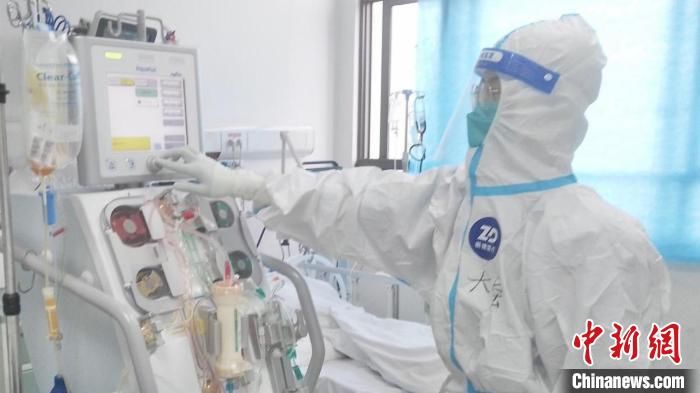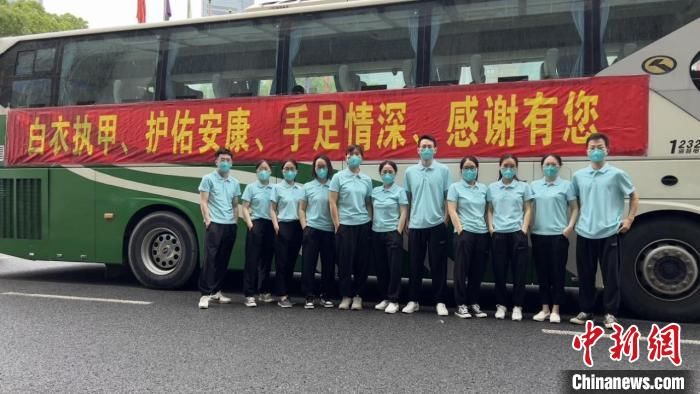
Medical staff rushed to Shanghai. Photo courtesy of Zhejiang Provincial People’s Hospital
Chinanews.com, Hangzhou, June 11 (Qian Chenfei, Lin Yangqing) On the 10th, members of the Zhejiang Provincial People’s Hospital’s critical care medical team in Shanghai returned safely with zero infection. The 11 team members left for Shanghai urgently on April 17, fighting in the ICU wards of the two designated hospitals for COVID-19 in Shanghai Pudong New Area Gongli Hospital and Shanghai Sixth People’s Hospital Lingang District. Upon their return, they will undergo a one-week intensive quarantine.
“Mom, the teacher praised my calligraphy today, I will continue to work hard.” “Mom, my father is quarantined today, I am a man, I will take good care of my sister, don’t worry.” “Mom, my sister and I miss you so much, when will you come back?” Since the expedition to Shanghai, the son of He Wenjuan, the nurse in charge of the intensive care unit of Zhejiang Provincial People’s Hospital, has sent her messages every day to report on the situation at home.

The intensive care medical team from Zhejiang Provincial People’s Hospital returned to Shanghai. Photo courtesy of Zhejiang Provincial People’s Hospital
He Wenjuan’s eyes reddened when she mentioned the pair of children at home, “The two children are really sensible, I have been away from home for nearly two months, and only my grandmother takes care of it, it’s really not enough. Fortunately, the brothers and sisters never cry, and they are always very considerate of us. They are afraid of disturbing my work. They only send messages and never make calls.”
Ni Renjie from the emergency room of Zhejiang Provincial People’s Hospital was dispatched to Shanghai Public Hospital of Pudong New Area. “How to perform effective venipuncture and arterial blood collection for patients while wearing two layers of latex gloves, and how to perform tracheal intubation maintenance and sputum suction for highly contagious patients with new coronary pneumonia positive tracheal intubation. It is also a process of self-learning.” Ni Renjie said.
For severe and critically ill patients with COVID-19, prone position ventilation is a very effective treatment for improving oxygenation, but for medical staff wearing protective clothing and fighting in the front-line intensive isolation ward of the epidemic, it is indeed a big project. Every time a patient is operated in a prone position, 5 medical staff are required to work together, including preliminary preparations, monitoring of various indicators, etc.
In the days when they rushed to Shanghai, the clothes of the medical staff were often soaked with sweat. They endured physical discomfort, adjusted their state, encouraged each other, and continued to persevere.
Hu Haijin, the nurse in charge of the intensive care unit, said, “I am very happy to be a member of the intensive care team in Shanghai. It is a responsibility and an honor.” Qingfengmingyue and the country are responsible, and do the most meaningful things at the best age.” This experience of helping Shanghai also made Pan Chenqian, a “post-90s” nurse in hepatobiliary and pancreatic surgery, re-acquainted with the meaning of “juvenile”.